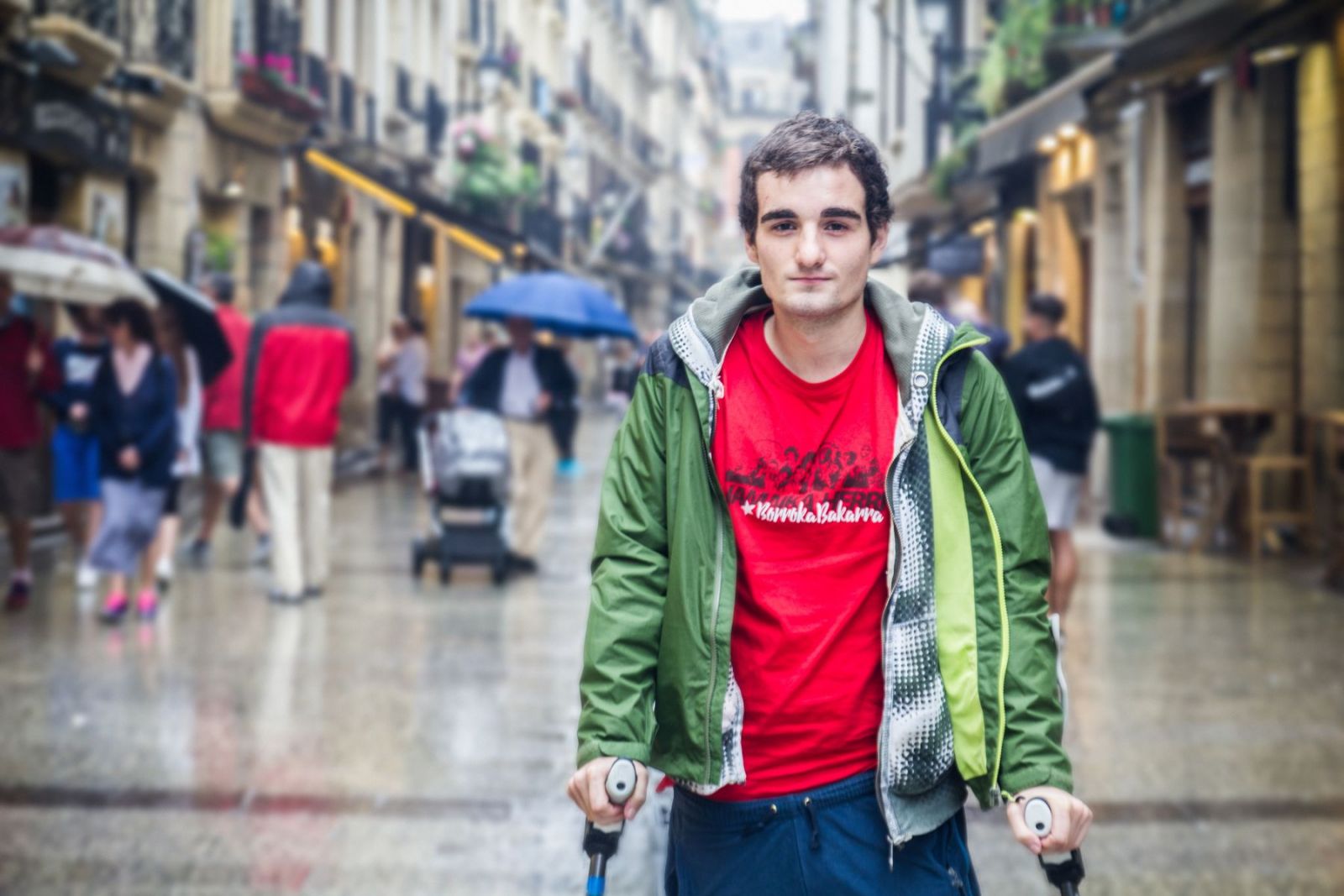The Basque police have taken an anti gag-law activist hit by a train to court
On 13th May, 2017 at Usurbil station (Gipuzkoa, Basque Country) Donostian Martin Goitiandia, who was protesting against the Spanish Gag Law, was seriously injured by a train. Now the Basque police have taken him, along with the person who waited with him for the ambulance to arrive, to court. The trial will be held on 5th March in Donostia.

aurre egingo dieten hedabide independenteak
After the Basque police carried out its investigation, Martin Goitiandia and the person who waited with him for the ambulance are going to be tried for damages caused. Two Euskotren employees have also been called to declare.
We interviewed Goitiandia back in June, and he answered as follows with the regard to the possible legal consequences: "I was asleep when the police arrived at the hospital. They saw my parents. They asked for my measurements in order to investigate the accident. There were a few other people at Usurbil station and the police asked them questions, but not me. They opened an inquiry and included the person who waited with me for ambulance in that. He is a minor. At first he was called as a witness, but, finally, he has been charged with causing material damage."

Controversial Law
The accident happened at Usurbil station when a group of 15 people from the pro-civil disobedience Eleak-Libre movement were painting a sign saying EAJ, Mozal Legeari ez (Basque Right, No to the Gag Law'). Many Basque and international activists have spoken out against the controversial law's criminalisation of the right to provide information, freedom of speech and demonstration.
Planning to stop the train coming from Donostia, Martin Goitiandia stood in front of it, but the driver did not see him and he got trapped under it. He spent more than three weeks in hospital, for two of which he was in intensive care. He had a broken thigh bone, his pelvis broken in three places, three cracks in his backbone, a great blow to his head, burns and other wounds. He was in an induced coma for 12 days.
Over the following days there were meetings, painting, slogans and protest initiatives in support of the Donostian activist and his family.
This article was translated by 11itzulpen; you can see the original in Basque here.





















